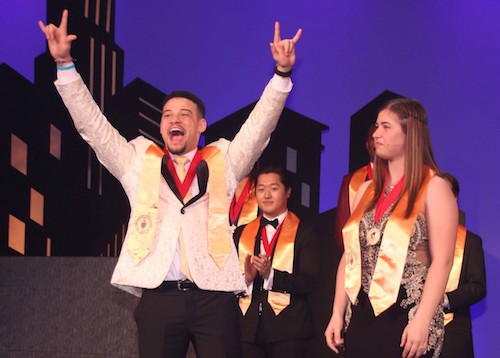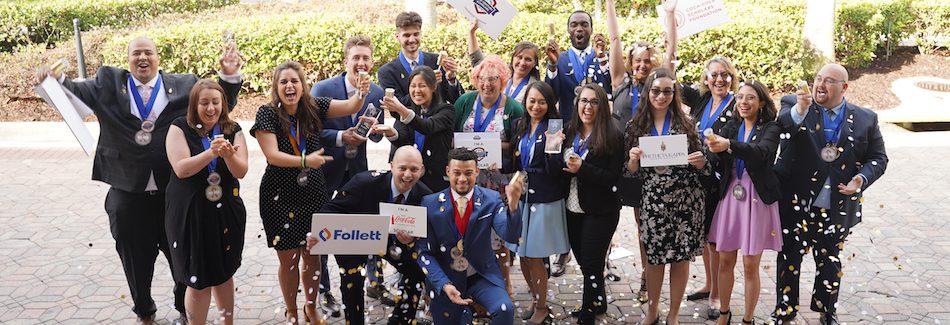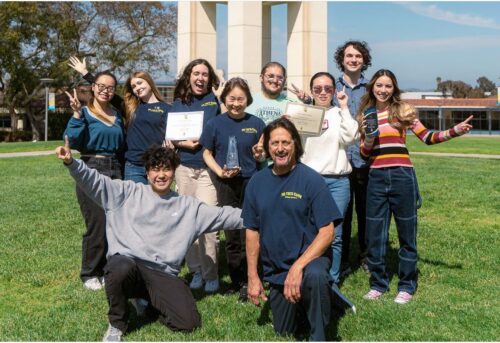Editor’s Note: This is a transcript of the speech given by James Elliott at Phi Theta Kappa’s annual Presidents Breakfast, held during the American Association of Community Colleges’ annual convention, on April 15. It has been edited for clarity.
James was named the New Century Transfer Pathways Scholar for the state of Delaware. He was also named to the All-USA Academic Team and spoke as the 2019 David Pierce Scholar. He was recently elected PTK’s 2019-2020 International President.
In 2011, I made the worst mistake of my life. I was arrested for my part as a gunman in a home invasion-style robbery. I was sentenced to seven years in prison.
Change is never easy, and in many cases, it is painful. The time I spent in solitary confinement resonates with me. Locked in a cell for 23 hours out of the day, I spent my 20th birthday alone. And my birthday card, I had to read through a small window on my cell door, because I was unable to have mail in my possession.
The time spent alone became time of reflection. Instead of being bitter, I chose to be better. I began to take distant learning classes. I helped others by serving as a GED tutor. I provided opportunities of change through facilitating programs. Ultimately, I shortened my sentence.
After a little over 2,000 days, I was released. I thought my bad days were over. Little did I know, the system was designed for me to fail.
One of the first jobs that I applied for was a janitor position. It was a good-paying job and would have provided for me. They told me I didn’t get this job because I was a felon. Well, if I can’t be a janitor, what am I supposed to be?
After this harsh reality, I ended up in the food industry making minimum wage.
This wasn’t going to cut it. I knew I was better than that. So, I enrolled at Delaware Technical Community College.
Now, there is something you need to know. When I committed this crime in 2011, I was student at Delaware Tech. Despite that, Delaware Tech opened their doors of higher learning when other schools denied me access. Delaware Tech understood the important role education played in my rehabilitation.
 At this same time, Phi Theta Kappa (PTK) was in the middle of making constitutional changes allowing citizens who had been incarcerated to become full members of the honor society. Both Del Tech and PTK had the willingness to go against society’s standards in reentry, providing me with the opportunities to change my life. Empowered by my academic success and engagement in PTK, I had the best year of my life.
At this same time, Phi Theta Kappa (PTK) was in the middle of making constitutional changes allowing citizens who had been incarcerated to become full members of the honor society. Both Del Tech and PTK had the willingness to go against society’s standards in reentry, providing me with the opportunities to change my life. Empowered by my academic success and engagement in PTK, I had the best year of my life.
Everyone has a “gift,” something they are naturally good at. I finally realized that my gift was leadership. I used this gift to serve as the Delaware State President and a member of the Middle States Regional Officer Team. Phi Theta Kappa provided me with a platform to share my passion for prison reform.
I hope that everyone in their lifetime will experience that moment when their gift and passion collide. It has given me purpose. My gift of leadership met my passion for prison reform, and my voice is being heard. People are listening.
With the approval of my college administration, I’m advocating for prison education and reform on my college campus. From numerous interviews, my story has appeared in local news articles in Delaware. I have spent countless hours assisting citizens with the pardon and expungement process.
I testified for major state and federal legislation changes regarding prison reform. I was invited to be a part of U.S. Senator Chris Coon’s roundtable, to testify in support of “The First Step Act,” a federal bipartisan prison reform bill that earlier this year was passed into law. I also stand before you today as the first New Century Scholar from the state of Delaware with a felony record.
Last week, I reached the pinnacle of student leadership within the Society by being elected from among my peers to represent over 250,000 active Phi Theta Kappa members across the nation as the 2019-2020 International President.
My grit, intelligence, and leadership abilities attracted institutions that helped me transcend the label of felon. I will continue to lead the way as I chase my own dreams, knowing that every barrier I break down provides an entrance for the many that follow.
Today, you have a part to play as well. All of you as Presidents of your respected colleges have chance to save a life, much like my college president Dr. Mark Brainard did for me.
Here is the situation: there are 2.3 million people currently in the U.S. prison system, 95 percent of whom are coming out. Of those citizens that are coming out, 68 percent will end up back in prison.
So, where do you all of you come into play?
Citizens who complete their associate-level degree see recidivism rates drop to 14 percent. Bachelor’s-level degrees drop to 6 percent; and after their master’s degree, chances of going back to jail are ZERO.
I urge you to consider prison education at your colleges. Make sure that your doors are open for people like me reentering society. Education is the answer to rehabilitation.
Thank You.




